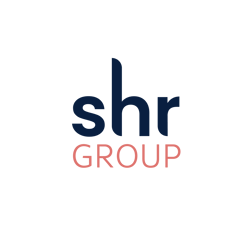 In January, Max Starkov, Founder & Director for HEBS Digital, joined our Hotel Tech Podcast for “Will Tech Save Your Hotel in 2019?” all about the need for hoteliers to first resolve the big picture tech issues before falling for any “shiny objects.” He covered customer engagement, acquisition, and retention and its underlying technology solutions like CRS, PMS, and RMS, and much more.
In January, Max Starkov, Founder & Director for HEBS Digital, joined our Hotel Tech Podcast for “Will Tech Save Your Hotel in 2019?” all about the need for hoteliers to first resolve the big picture tech issues before falling for any “shiny objects.” He covered customer engagement, acquisition, and retention and its underlying technology solutions like CRS, PMS, and RMS, and much more.
We’re almost half way through the year now. Are his predictions coming true for the hotel industry, maybe even for your hotel? Check out the highlights of what Max had to say, then be sure to listen to the full podcast!
How should hoteliers look at the cost of customer engagement technology?
In my opinion, there are two sides to hotel tech right now. What happens on the property, such as Alexa in the rooms, Wi-Fi, key cards, etc., and then what happens with the guest and how they book. It’s really important to know that OTAs only invest in the last one. For example, if you are a consumer planning to travel to Houston, you might go to Expedia or somewhere online. The cost of this kind of 3rd-party booking to the hotel is deducted in the property profit and lost statement. But now, say the same shopper books directly on the hotel website. That cost will be assumed over a period of time and is not deducted from P&L, but is normally considered as an expense. So, if the hotel is not doing well, guess what gets scrutinized the most? The sales and marketing within the hotel that is responsible for that direct booking!
Why is this a problem?
I feel it’s one of the worst self-inflicted wounds, a fundamental flaw in the industry, to treat your most valuable bookings, the direct bookings, in a manner less favorable than your most expensive bookings, those via the OTAs. If this is not corrected, the OTAs will just keep increasing their market share, and hotels’ profitability will continue to suffer. Kalibri Labs reported for 2018 that though hospitality did $155 billion in business in the U.S. alone, it paid $25 billion to acquire guests because of OTA commissions, which is even higher than previous years. So, when you talk about technology, the tech that will save you is not a robot bringing towels to a guest, but a real investment in major internal technology that will save your hotel.
Why is this happening? Why do hoteliers have such a tech blind spot?
One of the reasons is the lack of understanding about technology in hospitality today. Hoteliers either don’t understand it or don’t recognize it when they see it because they are not used to it, or simply because there is so much of it now. You have concierge tech and distribution tech and GDS and on and on. Now you have artificial intelligence (AI) as well. And hotels really have to realize that guest acquisition tech is the big tech, not the robot tech, that matters, and that that’s the tech they have to invest in. Another problem is that the hotel schools simply do not teach courses on hotel technology. It’s a problem that must be solved and not ignored.
How can hoteliers take back control of their businesses, and wrap their heads around the kind of tech that will save their hotels?
We’ve talked about how to look at guest acquisition costs, but as far as tech is concerned, hoteliers need to take a deep breath then take a step back and again, understand what the type of tech is that will help your hotel. As we said, there is the in-room type of technology, housekeeping, infrastructure, etc. That’s one kind and that’s fine. But it’s the guest engagement, acquisition, and retention tech that you need to hone in on and spend real money on. This is the distribution technology, the booking technology. We once worked with a $950 million-dollar hotel that did not want to spend $15,000 for their own website. How can this be? Going with a free or cheap booking engine. Really? How many times have we seen a PMS booking engine that didn’t even have mobile capabilities, but the hotel used it because it was free? Hotels must invest in data management, marketing automation, reputation management, all of it. All of these next-gen deep technologies need to be included when planning budgets for 2019 and beyond.
Is there a particular order for what kind of tech to invest in, from most to least important?
You have to ask which tech will bring your hotel the most benefit. So, for example, do you need mobile check-in for your lobby? Maybe, maybe not. Ask, will this investment generate more revenue? Will that robot in the lobby delivering lukewarm pizza help my bottom line? Probably not. Once the trendiness wears off, you’ll be stuck with robot repair bills and nothing more. Then ask, is my booking engine, CRS, etc. up to par? Less than 20% of hotel guests in the U.S. are repeat guests. The major chains are at 45%. The difference? The major chains know the value of investing in a strong CRS and loyalty programs that make guests feel valuable. It’s an investment that all hotels should find worth making now. Robots? Leave them until 2035!
What about how the industry measures profits?
In answering that, you first have to understand what’s most important to your hotel. And remember, it’s a lot less expensive to keep a guest than to acquire a new one, which costs 8-10 times more. All the major industry measurements, RevPAR, ADR, occupancy rates, the three top measurements. They often hide the total cost of acquisition, so I think the industry should adopt something called ProPAR, which is profit per available room, versus revenue per available room, because it is far more accurate as it includes all the costs of acquisition. I believe RevPAR can hide true costs and lead to poor spending decisions.
What’s the bottom line, Max?
Stay away from feeling like you have to do what all other hotels are doing, especially with technology that will do you no good. Leave the robots roaming the hallways to the other hoteliers, and go with technology that can actually help you run your hotel in a meaningful, profitable way. There was an interesting article in PhocusWire about how tech is not living up to hoteliers’ expectations, like block chain for instance. That’s because today, right now, there is no meaningful integration of block chain. It’s another shiny thing right now. But things like AI, that will and already is having huge implications for the industry. Booking.com, for instance, reports that it is now 85% powered on the back-end by AI. So, that will be a tech to pay attention to, but only if it is within your property’s budget. Another one is voice assistance. It’s got great potential. But don’t get distracted away from what matters right now, today. Keep your focus on the tech that can increase your revenue now, and the rest will come in time, at the right time.


